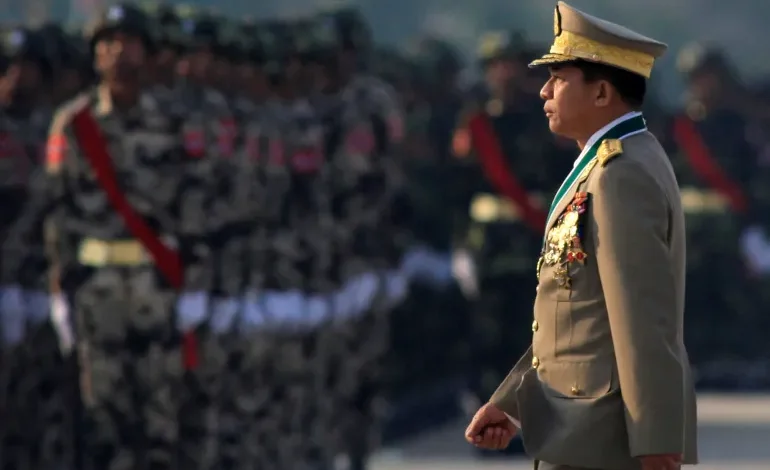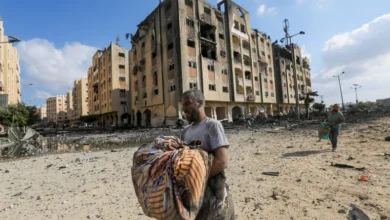Continued conflict leaves Myanmar mired in crisis: UN

Myanmar is mired in crisis as conflict escalates, with criminal networks “out of control” and human suffering at unprecedented levels, a United Nations report has warned.
UN special envoy for Myanmar, Julie Bishop, told the UN General Assembly’s human rights committee on Tuesday that “Myanmar actors must move beyond the current zero-sum mentality”.
Bishop called for an end to the violence, stressing that there can be little progress on addressing the needs of people while armed conflict continues across the Southeast Asian country, causing rising civilian casualties.
The conflict has “so severely undermined” the rule of law that “transnational crime emanating from Myanmar is proliferating,” she added.
“The sheer scale of arms productions and trade, human trafficking, drug manufacture and trafficking, and scam centres means Myanmar now ranks highest among all member states for organised crime,” she said. “The criminal networks are out of control.”
In the past year, powerful ethnic armed groups have gained territory, with the military government’s forces increasingly on the back foot in fighting.
The UN estimates three million people are displaced across Myanmar and some 18.6 million need humanitarian assistance.
Bishop, who previously served as Australian foreign minister, said she has engaged with the government, including Senior General Min Aung Hlaing in Myanmar’s capital, Naypyidaw, as well as opposition representatives and ethnic armed organisations.
It was unclear when the meetings took place and Bishop gave no further details.
The UN envoy said she also visited China and Thailand and will soon visit India and Bangladesh, “continuing to urge neighbouring countries to leverage their influence”.
She said she would also return to Naypyidaw but gave no timeframe.
“Any pathway to reconciliation requires an end to violence, accountability and unfettered access for the UN and its partners,” Bishop said.
“The Myanmar conflict risks becoming a forgotten crisis,” she added. “The regional implications of this crisis are evident, but the global impact can no longer be ignored.”










